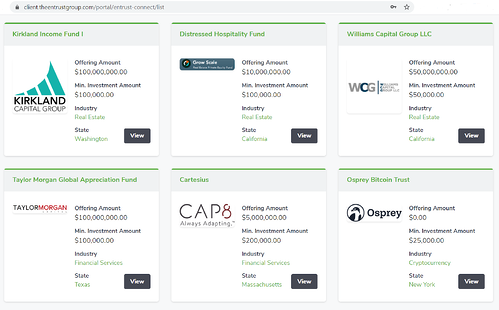
Private equity is a term that refers to investing in privately held entities such as companies or small businesses not listed on a public exchange. It operates independently from the public market and can insulate your portfolio from market fluctuations. This includes LLCs, however investing in LLCs should not be confused with establishing or owning LLCs, which is different.
Private equity offers the opportunity to get in on the ground floor of the next big thing. You can use your expertise to invest in people, projects, and causes you to believe in. As an investor, you will hold interest or shares in your chosen investments.






